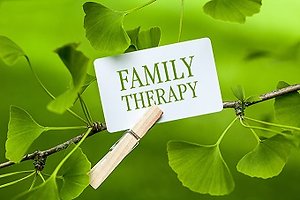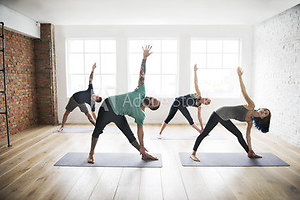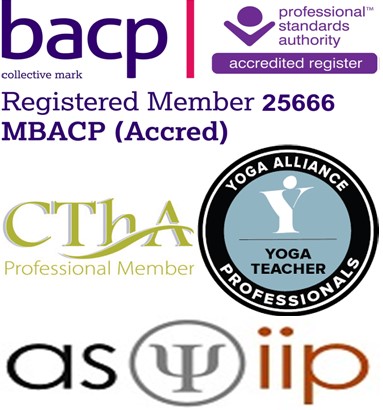About
Hello, I'm Sharon welcome to my web page, I follow a deeply integrative approach, I offer a unique blend of psychotherapy, yoga therapy, and spiritual guidance to support individuals on their journey toward healing and wholeness. Rooted in both modern psychotherapeutic models and timeless contemplative practices, my work is centred on the belief that true well-being arises from a harmonious connection between mind, body, and spirit.
Drawing from evidence-based therapeutic modalities alongside the wisdom of yoga and mindfulness, I create a compassionate space for clients to explore their inner landscapes. Whether you're navigating anxiety, trauma, life transitions, or a desire for deeper self-understanding, I support you through a holistic lens that honours your unique path.
My practice embraces the full spectrum of human experience: emotional, physical, mental, and spiritual helping you reconnect with your inner wisdom, cultivate resilience, and live with greater authenticity and purpose.
You can visit my LinkedIn, Yoga Alliance Professionals, Counselling Directory and BACP profiles to learn more about me and how I work.
Individual Counselling
My passion for counselling adults and young people with a range of presenting issues comes from the personal challenges and life experiences I have faced in an age where counselling services and support was not as available as it is now.
My hope is to offer early intervention support to clients so they can start therapy sessions, without lengthy waiting times.
I have consulting rooms in Shotts and Glasgow.
Family Counselling
Families spending time with a counsellor can explore issues and better understand children's intentions and individual behaviour and the ways this can influence wider family dynamics.
There are many ways challenges and differences between adults and children within your family can show up including: confusion, conflict and misbehaviour.
Time in family therapy can be a safe place to identify and explore the meaning of these differences and begin the process of working together to find an appropriate solution.
I can offer family counselling appointments in Glasgow.
Supervision
I work with supervisees from voluntary and statutory organisations as well those in private practice to support and expand their edge of awareness as a professional counsellor or practitioner.
I encourage and support reflection and development around; legal issues, safeguarding, theoretical knowledge, ethical dilemmas and development of self awareness.
I offer clinical supervision in Glasgow and Shotts to practitioners from a range of modalities.
Therapeutic Yoga
Is a one to one trauma informed and embodied approach that integrates counselling and specific yoga practices to regulate the autonomic nervous system. This is especially useful when working with a range of physical and mental health issues
Working therapeutically 1:1 involves a consultation to understand your health and lifestyle needs, and helps inform which yoga practices would best support you. All sessions are respectful of your your body and it's existing range of movement and are adapted to help rehabilitate any injury.
In my practice the most common presentations are:
Anxiety
When practiced regularly, the individual combination of grounding, breath practices, yoga postures and relaxation balance and regulate the heightened "fight/flight" response of nervous system to be more able to access the parasympathetic nervous system or "rest and digest". These practices help to reduce the physical and mental and emotional symptoms of anxiety: poor sleep, shaking, restlessness, muscle tension, nausea, digestive problems, sweating, shortness of breath, palpitations, panic attacks, tiredness, negative thought cycles, excessive worry, poor focus and concentration, forgetfulness and irritability.
Depression
Clients experiencing depression can live with an everchanging range of emotional, physical and mental states that can have a significant impact on daily living. Depression can be characterised by persistent: low mood or sadness, low self-esteem, feeling hopeless and helpless, anxious or worried, guilt ridden, tearful and feeling irritable and intolerant toward others. Some common examples of physical symptoms include: disturbed sleep, lack of energy, changes in appetite and weight, unexplained aches and pains and low sex drive. Mental function can be impaired to varying degrees making it more difficult for clients to: make decisions, enjoy life and show motivation or interest and some clients can experience thoughts of self-harm or suicide. Research has indicated that clients experiencing depression show higher levels of the stress hormone cortisol and lower levels of key neurotransmitters, working regularly with specific yoga practices will begin to regulate the nervous system and alleviate the unwanted symptoms.
Trauma
Trauma symptoms can be complex, clients often report a range of physical, mental and emotional experiences. These can include disturbed sleep, nightmares or insomnia, flashbacks, repetitive distressing images and physical sensations including trembling, aches and pains,sweating and nausea, these can also contribute to difficulty concentrating and irritability and anger outbursts. These can occur immediately after a traumatic event or can be triggered at a later time. Working therapeutically with with individual yoga practices and counselling interventions equips clients with the tools to balance and regulate the movement between sympathetic and parasympathetic responses helps to build “vagal tone”, this means the clients nervous system has the capacity to develop more resilience and tolerance to internal and external stressors.
If you recognise individually or a combination of any of the above therapeutic yoga will equip you with the skills to address and self regulate the stress response in bodily systems and physiology and move from "fight/flight" (sympathetic NS) to "rest and digest" (parasympathetic NS).Home practice between sessions is an essential part of the process of restoring homeostasis in the body and effecting lasting change.
February Self-Care: Taking Time to Breathe
As winter comes to an end and spring begins to emerge and we become more active, it is important to take time to focus on your breath Because our breathing pattern just happens, we don’t always give it the attention it needs.
When we become stressed or, the opposite when we are repeatedly inactive this changes the way we breathe. Fortunately, our breath is the only part of the autonomic nervous system that can deliberately manipulated.
This ability can be really useful when people are experiencing anxiety or depression, changes in physiology can cause the breath to lose its instinctive natural flow. Either becoming too fast and shallow, which can agitate our stress levels or not breathing adequately enough which can influence changes in mood and perpetuate feeling depressed.
If you recognise either of these, taking some time to observe and connect with your breath can help restore balance. A good place to start is checking how many times you breath in 1 minute an adult at rest averages between 10-15.
Taking time to ground by tuning into your body as you sit in a comfortable seated position utilising conscious diaphragm breathing, working to have a manageable count of equal duration inhale and exhale, can encourage more oxygen into the lower lungs. Aim for 5 minutes, when practiced regularly the count and duration can begin to increase.




